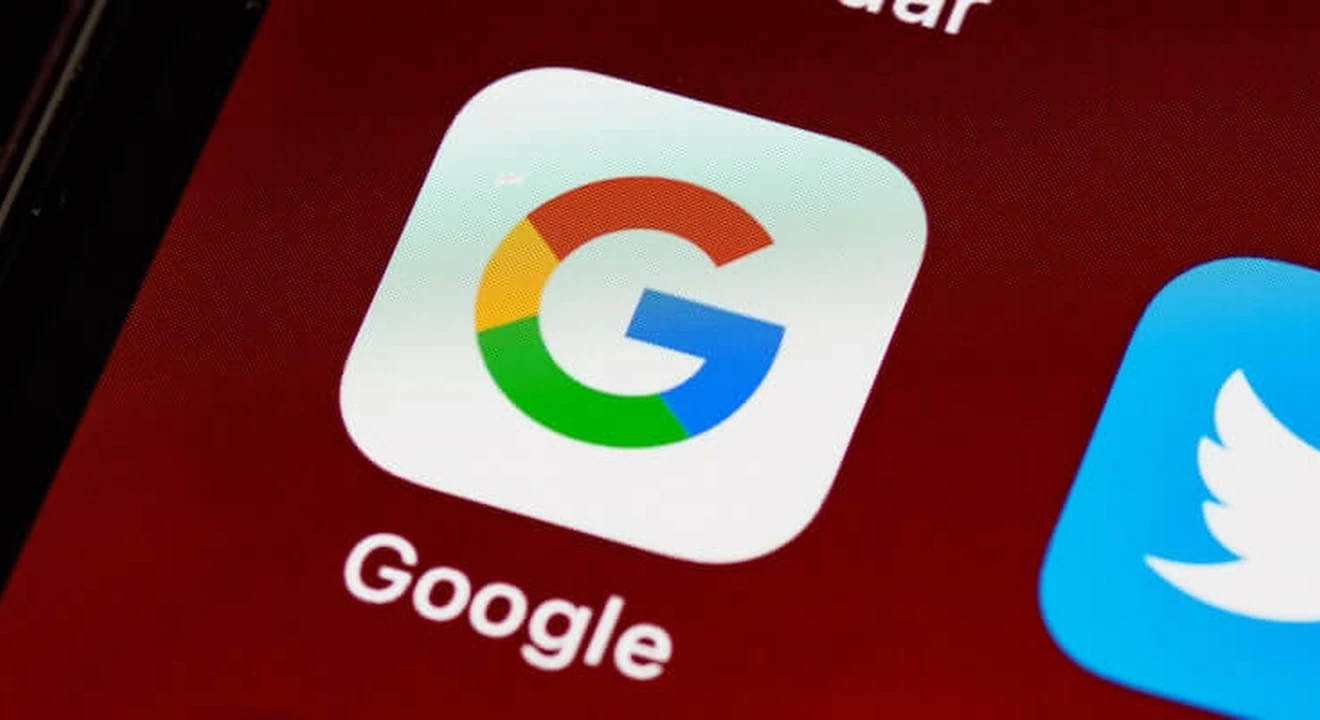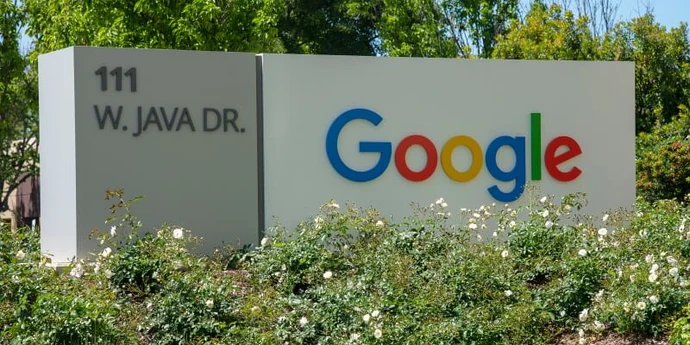Account manager (and technical account manager) interviews at Google are really challenging. The questions are difficult, specific to Google, and cover a wide range of topics.
The good news is that the right preparation can make a big difference and can help you land the job at Google (or Google Cloud). We have put together this ultimate guide to help you maximize your chances of success.
This guide covers the interview process for both account managers and technical account managers at Google, so regardless of which role you're targeting, you should find the information you need below.
Here's an overview of what we'll cover:
Click here to practice 1-on-1 with Google ex-interviewers
1. Interview process and timeline
1.1 What interviews to expect
Google's account manager interview process is extensive and can be quite time consuming. It typically takes 4-8+ weeks to go through the process. Note that interviews at Google Cloud Platform follow a similar process. Here's an overview of the steps you'll face along the way:
- Resume screen
- Recruiter phone screen (~30min)
- General cognitive ability test (for some candidates)
- Hiring manager interview (~45min)
- 2-4 onsite interviews (~45min each)
Below, we'll dig into each of these steps in more detail, so that you can have a clearer understanding of what to expect. And if you're applying for a role as a technical account manager, you'll want to pay special attention to section 1.3 below, which covers the differences in the interview process for account managers and technical account managers at Google. If you're interviewing at multiple companies, take a look at our guides to the Facebook account manager interview or the Amazon (technical) account manager interview.
1.1.1 Resume screen
First, recruiters will look at your resume and assess if your experience matches the open position. This is the most competitive step in the process, as millions of candidates do not make it past this stage.
If you’re looking for expert feedback on your resume, you can get input from our team of ex-FAANG recruiters, who will cover what achievements to focus on (or ignore), how to fine tune your bullet points, and more.
1.1.2 Recruiter phone screen
After your application is accepted, or after you've been contacted by a recruiter, you'll start the first step of the interview process with Google: talking to a recruiter on the phone.
During this call, the recruiter will be looking to confirm that you've got a chance of getting the job at all. So be prepared to explain your background and why you’re a good fit for Google. You should expect typical behavioral and resume questions like, "Tell me about yourself", "Why Google?", etc.
If you get past this first HR screen, the recruiter will then give you some information about your next steps in the process.
1.1.3 General cognitive ability test (some candidates)
In rare cases, you may also be asked to take a general cognitive ability (GCA) test. Not all candidates are asked to perform this step, but when it is used, it usually takes place right before or right after the initial recruiter phone screen.1.1.4 Hiring manager interview
Once you've passed the recruiter phone screen, and maybe the GCA test, your next interview will be more in-depth. This interview is typically conducted by the hiring manager for the role that you're targeting and will probably be about 45-minutes long.
The types of questions you'll be asked in this round, are roughly the same as the questions you'll encounter in your onsite interviews. In particular, you'll want to be well prepared for "client service" and behavioral questions. More on this below.
If you make a good impression in this interview, you'll be advanced to the final round of interviews.
1.1.5 Onsite interviews
Onsite interviews are the real test. You'll typically encounter 2-4 back-to-back interviews, and the interview questions usually fall into one of five broad categories:
- Client service questions, where you'll be asked questions about solving client problems, identifying opportunities to help clients' grow their businesses, and your communication skills.
- Behavioral questions, where you'll be asked questions about your past work experience, your motivation for applying, and your culture-fit with Google.
- Leadership questions, where you'll be assessed on your ability to work well with others, your ability to overcome challenges, and your overall leadership ability.
- Product / strategy questions, where you'll be assessed on your knowledge of Google's products and your ability to make strategic business and product decisions.
- Technical questions (technical account managers only), where you'll be asked about Google's products or related technologies, but this time the questions will be more technical and may require you to recommend an approach for accomplishing specific tasks.
[COVID-19 changes] Due to the pandemic, it is likely that the "onsite" interviews will actually be held via a videoconference tool (i.e. Google Hangouts). When you are invited to the onsite interviews, you can ask your recruiter for the latest information on the company's COVID-19 protocols.
1.2 What exactly is Google looking for?
At the end of each interview your interviewer will grade your performance using a standardised feedback form that summarizes the attributes Google looks for in a candidate. The form is constantly evolving, but below we have listed the main components we know of at the time of writing this article.
A) Questions asked
In the first section of the form the interviewer fills in the questions they asked you. These questions are then shared with your future interviewers so you don't get asked the same questions twice.
B) Attribute scoring
Each interviewer will assess you on the four main attributes Google looks for when hiring:
- General cognitive ability. This is often referred to as "GCA" by Googlers. The company wants to hire smart account managers who can learn and adapt to new situations. Here your interviewer will try to understand how you solve hard problems and how you learn. For more information, take a look at our guide to the Google GCA interview.
- Role-related knowledge and experience. This is often referred to as "RRK" or "RRKE" internally. The company wants to make sure that you have the right experience, domain expertise, and competencies for the position you're applying for. For more information, take a look at our guide to the Google RRK interview.
- Leadership. Google looks for a particular type of leadership called “emergent leadership.” You'll typically be working with cross-functional teams at Google, and different team members are expected to step up and lead at different times when their skills or perspective are needed.
- Googleyness (i.e. culture fit). The company wants to make sure Google is the right environment for you. Your interviewer will check whether you naturally exhibit the company's values including: being comfortable with ambiguity, having a bias to action, and a collaborative nature.
Depending on the exact job you're applying for, these attributes might be broken down further. In this middle section, Google's interviewers typically document your answers in detail, and give you a score for each attribute (e.g. "Poor", "Mixed", "Good", "Excellent").
C) Final recommendation
Finally, interviewers will write a summary of your performance and provide an overall recommendation on whether they think Google should be hiring you or not (e.g. "Strong no hire", "No hire", "Leaning no hire", "Leaning hire", "Hire", "Strong hire").
1.3 Technical account manager interview process
Up to this point, we've focused primarily on the interview process for the account manager role at Google. However, there is also a closely related "technical account manager" role. So, here we'll briefly highlight the similarities and differences in the interview processes for these two roles at Google. This will allow you to use this page to prepare effectively for either one.Overall, the interview process is pretty similar for both roles, and for technical account managers it typically consists of the following steps:
- Recruiter phone screen
- An initial interview (likely with the hiring manager)
- 2-4 onsite interviews
- Presentation / case study interview (for some candidates)
You'll probably notice that there are two primary differences between this process, and the process for account managers that we outlined in section 1.1 above. First, we don't believe that the "GCA test" is used for technical account managers.
And second, some technical account managers are asked to perform a presentation or case study interview towards the end of the process. For this interview, candidates are given a prompt in advance, and then they'll need to come prepared to present or discuss the provided topic.
For example, you might be given the scenario of a Google Cloud Platform client who is concerned about whether Google's infrastructure will be able to handle their peak demand. You'll need to be prepared to address the client's concerns, and explain how Google's technology will support their needs.
Those are the high-level distinctions in the interview process. Now let's jump into the types of questions that you should be prepared for as a technical account manager or an account manager.
2. Example questions
To help you prepare strategically for your interviews, we have used Glassdoor data to identify the types of questions that are asked in Google account manager interviews.
Note that the data we've analyzed is from Google account manager interview reports, except for the technical questions, which come from Google technical account manager interview reports. That's also why we haven't listed a frequency percentage for technical questions. With that said, let's dive in and look at the five broad types of interview questions you can expect:
- Client service questions (30% of questions)
- Behavioral questions (30%)
- Leadership questions (24%)
- Product / strategy questions (15%)
- Technical questions (Technical account managers only)
Now let's dig deeper into each question type!
2.1 Client service questions
A big part of every Google account manager's job is to serve clients who use Google's products. This can look a bit different depending on your role, but here are a few examples of what this often entails:
- Identifying new opportunities to help clients grow their sales (or other important metrics) using Google's products
- Helping clients implement Google's products for their businesses
- Solving problems that clients are facing with Google's products
- Teaching clients how Google's tools or related technologies work
- Communicating with clients and managing their expectations
- Analyzing data that could be useful for clients
Since these types of tasks are an important part of any account manager's job, you should be prepared to answer related questions during your Google interviews.
In order to do that, we'd recommend that you prepare some examples that highlight your experience with these areas. If you have any specific experience with Google's products that you can use as an example, that's great. Otherwise, you can use similar products in your examples, just be intentional about highlighting skills that will be transferable to Google.
You can practice your answers using the example questions below. These are real Google account manager interview questions that were reported on Glassdoor, we've just made edits to the language in some places to make them easier to use (e.g. grammar and phrasing, removing location-dependent details, etc.).
You'll notice that we've divided the questions into a few sub-categories, but this is just meant to make the questions easier to study. It's a good idea to develop strong answers to at least one question from each sub-category, but you don't need to worry about memorizing these groupings.
Example client service questions
- Growth / problem solving
- A local ice cream shop wants you to run a Google AdWords campaign. How can you help them reach their audience?
- Your client that runs a burger shop has come to you for help, saying their sales have dropped since a McDonald's opened in the neighborhood. What is you strategy?
- Explain a business plan you would propose to a friend looking to start a bakery in the [nearby city] area
- Describe the marketing plan you would use to open an online bookstore in a country where you don't know the market well
- Describe any innovative approaches you have developed to identify new opportunities
- How do you improve a customer's sales by 20%?
- How would you increase customer service from 80 to 90% with no additional resources?
- Communication
- Tell me about a time that you used data to convince your client of something.
- How would you explain the internet to somebody who has absolutely no idea?
- If your client asks for a feature, saying that they'll be able to increase revenue and buy double the services from Google, what would you do?
- Analytical
- Give me an example where you had to manage a large amount of data
- Describe a time you had to be analytical
- Tell me about a situation when you had to use your analytical skills and how you used them
2.2 Behavioral questions
Google account managers are the client-facing contacts for businesses using Google's products (or for potential new clients).
As a result, Google will want their account managers to be excellent at communicating in a clear and compelling way. And since account managers represent Google, the company will need to make sure that each new hire fits Google's company culture. Behavioral interview questions can be used to assess candidates on these areas.
Below, we've compiled a list of example behavioral questions that you can practice with. These are all real Google account manager interview questions that were reported on Glassdoor, we've just made edits to the language in some places to make them easier to use (e.g. grammar and phrasing, translating to English, etc.).
Example behavioral questions asked by Google
- Why Google?
- What is your greatest weakness?
- What are your biggest achievements in your past work?
- Tell me about yourself
- How is your current role applicable to this role at Google?
- Why are you interested in this role?
- Why are you interested in sales?
- Would you leave your current job and start this one tomorrow?
- What is Google?
2.3 Leadership questions
Leadership questions are similar to behavioral questions, but they focus less on your motivation and fit with Google. Instead, they focus more on collaboration (e.g. how you collaborate with cross-functional teams) and how you respond to challenges (e.g. how you handle change).
Your leadership, collaboration, and problem solving abilities will all be central to your role as a Google account manager. And you should expect your interviewer's to test you on these skills using questions like the ones listed below. You'll notice that we've divided the questions into a few sub-categories, but this is just meant to make the questions easier to study, so don't worry about the groupings too much.
Below, we've compiled a list of example leadership questions that you can practice with. These are all real Google account manager interview questions that were reported on Glassdoor, we've just made edits to the language in some places to make them easier to use (e.g. grammar and phrasing, translating to English, etc.).
Example leadership questions asked by Google
- Leadership
- How do you manage conflicts between your work and that of an Account Executive?
- If you had coffee with Sundar Pichai what would you talk to him about?
- Which traits differentiate a manager from a leader, and how do you rank yourself as a leader on those traits?
- Collaboration
- How would you deal with a coworker who you notice is isolating themselves from the larger group?
- Tell me about a time you worked on a cross-functional team
- Tell me about a time you have shown teamwork
- Challenge
- Tell me about a time you faced a challenge and how you solved it
- Tell me about a time you improved a process at one of your previous workplaces.
- Tell me about a difficult situation in your previous job
- Tell me about a time you had to change
- What is your most challenging task?
2.4 Product / strategy questions
Google account managers are experts on Google's products. So if you want to make a good impression during your interviews, you should be prepared to speak knowledgeably about Google's products. This may require some additional preparation, but it's worth it. In particular, you'll want to be prepared to discuss the specific Google product that your role is related to (e.g. Google Ads, Google Cloud, etc.).In addition, you'll need to be able to think about Google's products and teams strategically. Not just tactically. As a result, you'll want to be ready to talk about high-level strategy during your interviews.
Below, we've compiled a list of example product / strategy questions that you can practice with. These are all real Google account manager interview questions that were reported on Glassdoor, we've just made edits to the language in some places to make them easier to use (e.g. grammar and phrasing, translating to English, etc.).
Example product / strategy questions asked by Google
- You're in charge of the team that just acquired Waze. What do you do next?
- What is your favorite Google Product and how are you going to improve it?
- How do you intend to sell Google Products?
- What kind of app/startup would you build right now given the state of the ecosystem?
- How would you make an investment to grow G-Suite portfolio sales?
- How much does the company invoice per day for a product? Estimate it.
- Do you think what Google does with it's Google Ads products for small and medium businesses is important?
2.5 Technical questions (technical account managers only)
If you're applying to be a technical account manager, then you'll also want to be prepared to answer questions that are more technically in-depth than the questions you'd face as an account manager.
Fundamentally, account management is about solving client problems and helping them grow. And technical account managers tend to do more technical problem solving.
Below, we've compiled a list of example technical questions that you can practice with. These are all real Google technical account manager interview questions that were reported on Glassdoor, we've just made edits to the language in some places to make them easier to use (e.g. grammar, phrasing, etc.).
Example technical questions asked by Google
- A new customer would like to migrate an existing ecommerce app to the cloud, how would you guide them?
- How would you recreate Netflix using Google Cloud Platform?
- What data structure would you use to represent a scenario where a person has friends and each friend has friends?
- How can you efficiently transfer a large number of files from a Unix server to another one?
3. How to prepare
Now that you know what questions to expect, let's focus on how to prepare. Here are the five preparation steps we recommend to help you get an offer as a Google (or GCP) account manager or technical account manager.3.1 Learn about Google's culture
Most candidates fail to do this. But before investing a ton of time preparing for an interview at Google, you should make sure it's actually the right company for you.
Google is prestigious and so it's tempting to assume that you should apply, without considering things more carefully. But, it's important to remember that the prestige of a job (by itself) won't make you happy in your day-to-day work. It's the type of work and the people you work with that will.
If you know account managers who work at Google (or used to) it's a good idea to talk to them to understand what the culture is like. In addition, we would recommend reading this interview with Eric L. Smith (a Google technical account manager), as well as the following resources:
- Google's mission statement (by Google)
- Google's values (by Google)
- Google strategy teardown (by CBS Insights)
3.2 Practice by yourself
Next, there are several things that you can do to start practicing by yourself.
3.2.1 Learn how to approach questions
First, you'll probably find it helpful to learn a general approach for answering Google's interview questions. A helpful resource on that topic, is the below video from Google.
The video specifically mentions Google's leadership interviews, but some of the information provided is more broadly relevant to Google interviews. And the video also gives insight into what Google is looking for in their candidates, which should be helpful for understanding where to focus your answers.
Here is a summary of the video:
- Communication and leadership style. Show you are comfortable with "emergent leadership". Explain how you work with different people during the course of your work for clients.
- Navigating complexity and ambiguity. Make it clear you take initiative even when dealing with complex problems. And that you keep all your stakeholders up to date along the way.
- Working with teams. Show that you've got empathy for other people's opinions. And that you can create alignment without generating frustration.
- Vision. Be ready to articulate the purpose of the Google products you work with, and how it can help your clients grow their businesses.
- Delivering results. Show that you deliver results by running a clear process with goals and metrics to measure progress. In addition, make it clear you're leaving room to adapt.
In addition to studying the video above, we also recommend learning our step-by-step method for answering behavioral questions. Similar to the video, this guide is focused on a specific question type (behavioral), but you may find some of the information to be useful across multiple question types.
Once you've gotten started by studying the two resources above, then you should brush up on the job description and product information related to your role.
3.2.2 Brush up on product information
Being knowledgeable about the specific product area where you'll be working, will be critical for your interviews. So, regardless of how much experience you have, it's a good idea to refresh your memory on the Google product(s) that you'll be focused on.
For example, if you're applying for an account manager role within Google Cloud, then you should brush up on the latest information about Google's cloud products. And learn as much as you can about what Google offers, and how those products benefit customers. If you know anyone who works at Google, this is also a great opportunity to reach out to see what you can learn from them.
You should also take the time to carefully read the job description for the role that you're applying for. If there's anything mentioned that you don't understand, do some research so that there won't be any surprises when you talk to your interviewers.
One more thing you can do is to "customize" the example questions that you practice with, by incorporating products that will be relevant to your role.
3.2.3 Practice answering questions
Now it's time for action! Practicing with real interview questions is going to be an extremely important part of your interview preparation. This step will help you build confidence and improve your answers over time.
There are over 40 example interview questions in this guide, and as we've mentioned previously, they are all from REAL Google account manager (or technical account manager) interviews. As a result, they should be very similar to the types of questions you'll be asked.
We'd encourage you to practice with the provided example questions. And before you get started, here a few tips to help you structure your practice time:
- Master at least one question from each question type. Draft your answer and practice it multiple times, until you can hit all of your main points in a clear and concise way.
- Identify the question types where you struggle the most. Then make sure you take the time to practice multiple questions from that category, to make sure you'll be ready!
- Practice out loud. Play the role of both the candidate and the interviewer, asking questions and answering them. This approach may sound strange, but practicing interviewing out loud will significantly improve your confidence and the way you communicate your answers.
- Practice as many questions as possible. Even if you aren't asked the exact questions that you've prepared for, practicing with a variety of questions will help you get a better feel for the patterns of Google interview questions.
- Spread out your practice over multiple days / times. This will help you to build confidence and could also help you remember your answers more clearly on the day of your interviews.
3.3 Practice with peers
Practicing by yourself will only take you so far. One of the main challenges of account manager (and technical account manager) interviews is communicating your different stories in a way that's easy to understand. As a result, we strongly recommend practicing with a peer interviewing you to help you further prepare.
Practicing with a peer takes you one step closer to matching the conditions of the real interviews, because now you'll have another human being asking you questions. In addition, since a peer will be able to view your answers a bit more objectively, they should also be able to give you some initial feedback to help you improve.
A great place to start with peer interviews is to practice with friends or family if you can.
3.4 Practice with ex-interviewers
Practicing with peers can be a great help, and it's usually free. But at some point, you'll start noticing that the feedback you are getting from peers isn't helping you that much anymore. Once you reach that stage, we recommend practicing with ex-interviewers from top tech companies.
If you know an account manager or someone who has experience running interviews at Google or another big tech company, then that's fantastic. But for most of us, it's tough to find the right connections to make this happen. And it might also be difficult to practice multiple hours with that person unless you know them really well.
Here's the good news. We've already made the connections for you. We’ve created a coaching service where you can practice 1-on-1 with ex-interviewers from Google and other leading tech companies. Learn more and start scheduling sessions today.















